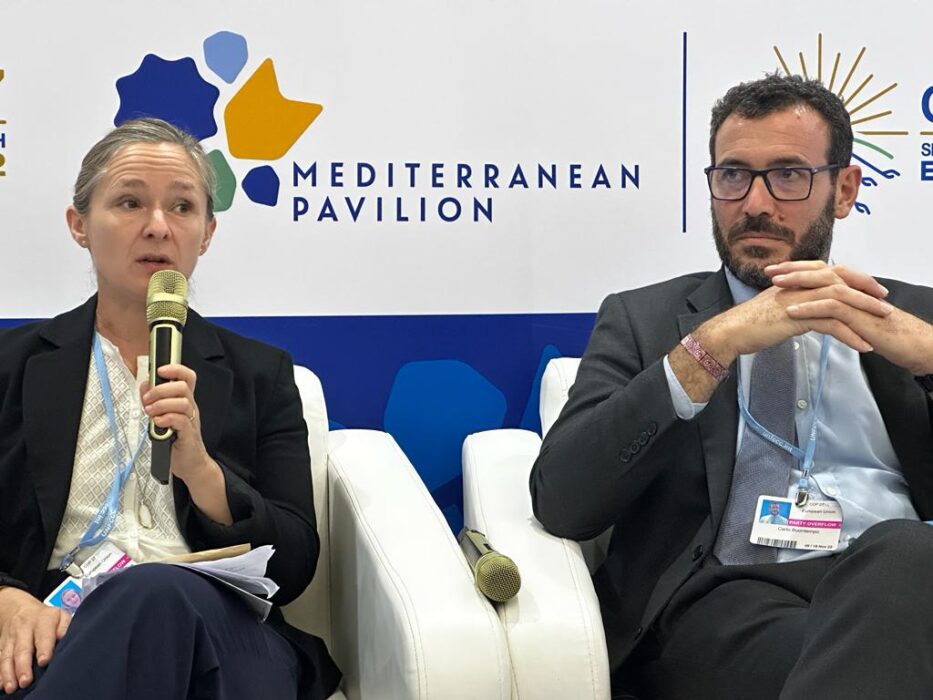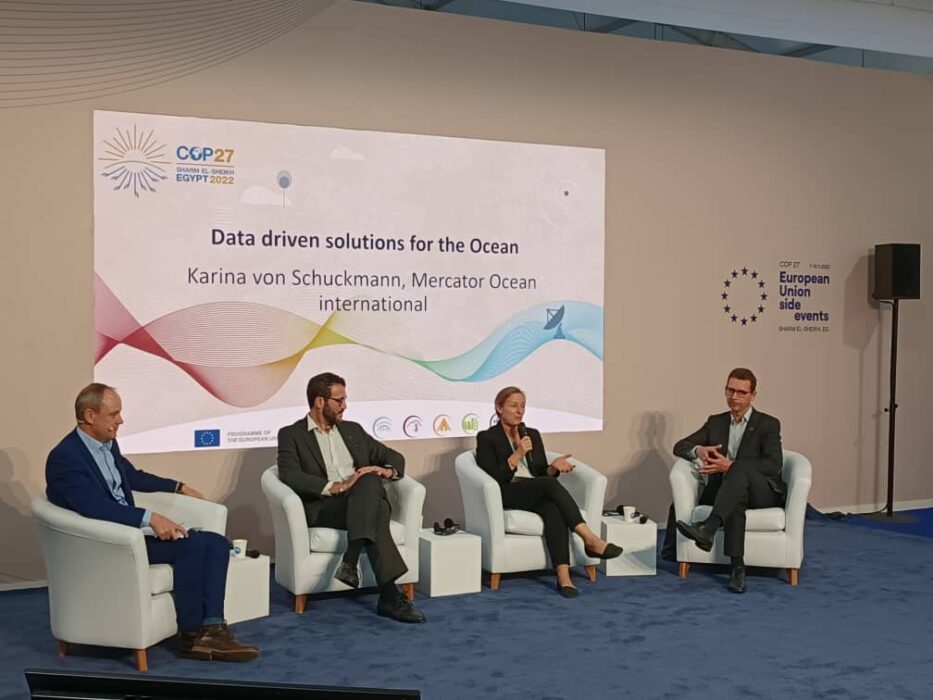November 6th marked the launch of the Sharm el-Sheikh Climate Change Conference (COP27), which brings together the signatory nations of the United Nations Framework Convention on Climate Change (UNFCCC) and numerous climate stakeholders. For the first time at the UNFCCC COP, an Ocean Pavilion has been opened, highlighting the ocean’s enormous role in climate. This furthermore emphasizes a real shift in the way we include the ocean in climate discussions, in our recognition of the interlinkages between the ocean and climate change.
Karina von Schuckmann, oceanographer specialised in ocean climate monitoring at Mercator Ocean international, is present in Egypt and will participate in multiple sessions throughout the two-week conference, addressing various ocean topics from sea-level rise, to ocean health, data accessibility, to climate risk in the Mediterranean. Find more information about each session down below:
Sea Level rise
On November 7th, Karina Von Schuckmann participated to an IPCC Conference “IPCC projections & planning for extreme sea level rise risk” which focused on low-likelihood / high impact (LLHI) sea-level rise, and what this means for coastal adaptation. Experts discussed the latest projections of sea level rise, where to find data and how to interpret projections.
Watch the replay of the session here
Cultural Heritage and Climate Change
On November 8th, the session “Cultural Heritage and climate risk: Putting Copernicus earth observation data to work in the Mediterranean region” was held at the Mediterranean Pavilion by ECMWF. Representing the Copernicus Marine Service, Karina von Schuckmann joined the panel to discuss how free and open earth observation data from the EU’s Copernicus programme can assist action to face climate change’s increasing risks within the region.
Watch the replay of the session here

Earth Observations for Mitigation

On November 9th, the UNFCCC organised the Earth Information Day, to exchange information on the state of the global climate system and developments in systematic observation. Karina von Schuckmann participated in the topic “Earth Observations for Mitigations” to present the role of observations in enhancing and understanding the Earth’s climate cycles and further discuss the existing observation gaps.
Watch the replay of the session here.
Data-driven solutions
On November 10th, the EU DG-DEFIS hosted the following session “Copernicus: data-driven solutions for decision making and action” at the EU Pavilion, gathering the Copernicus Services to present real-life applications, tools and policies created with Copernicus earth observation models and data for climate challenges. Through their examples, panelists from the Copernicus Services showcased what is being done with Copernicus free and open earth observation data and applications in the context of climate adaptation and mitigation planning, particularly in the context of Africa, to inspire and stimulate others to use these resources. Karina von Schuckmann presented data-driven solutions for the Ocean, activities, and actions of the Copernicus Marine Service.

Ocean Health

On November 16th, a roundtable will gather to discuss “One Health, the Ocean, and Climate Change”, aiming to introduce the interlinkages between these and explore the environmental law and policy dimensions of One Health and the link to the SDGs. In her presentation “Climate change and ocean science, data, and services for the UN 2030 Sustainable”, Karina von Schuckmann will address the key role played by the ocean in the Earth system, and within the SDGs framework: SDGs are all interconnected and SDG14, more particularly, has a fundamental role in supporting the overall Agenda 2030.

